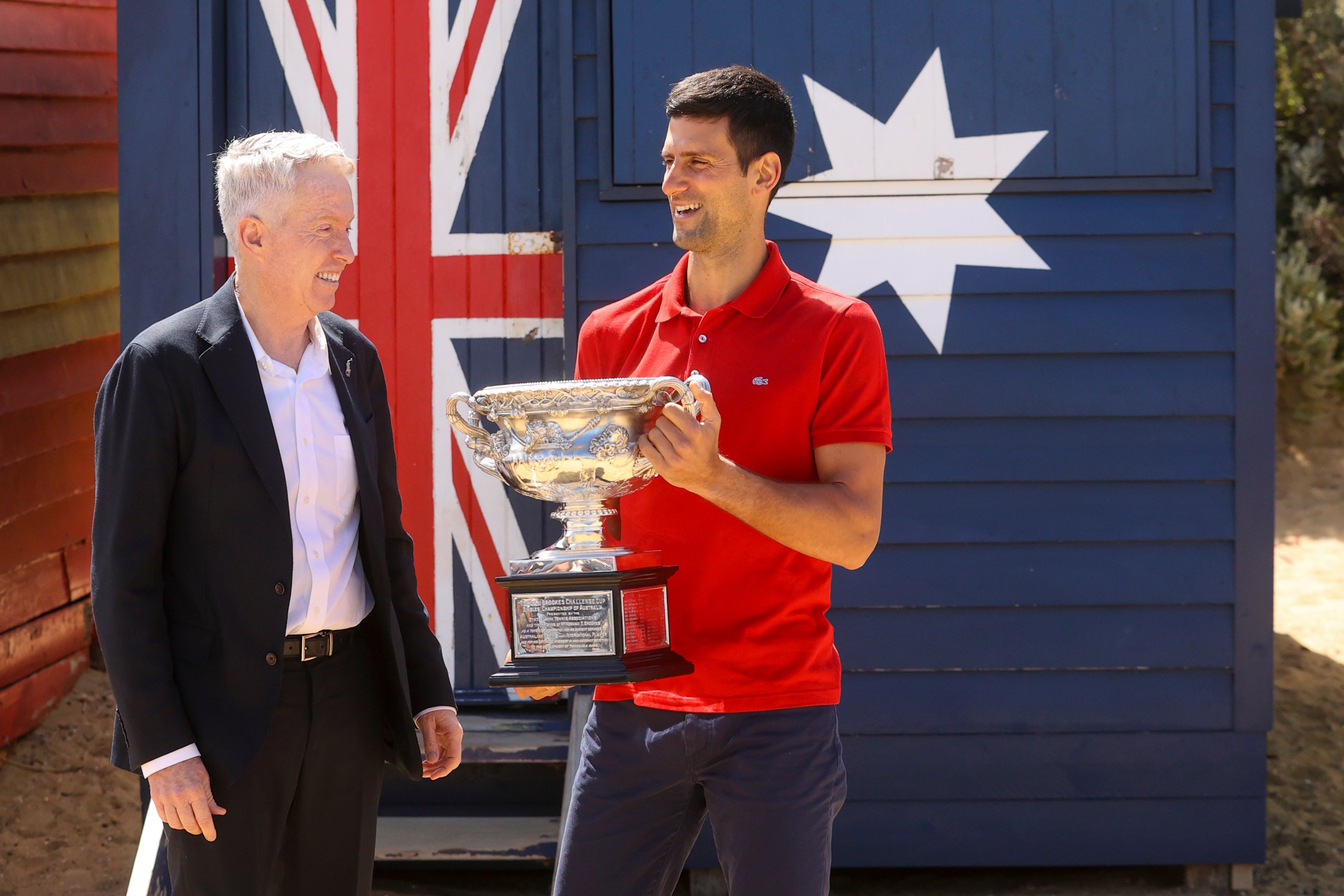Judge asks what more Djokovic could have done for a visa
An Australian judge who will decide whether top-ranked tennis star Novak Djokovic plays in the Australian Open has questioned what more the Serbian could have done to meet Australia’s coronavirus entry requirements

An Australian judge who will decide whether top-ranked tennis star Novak Djokovic plays in the Australian Open questioned on Monday what more the Serbian could have done to meet Australia's coronavirus entry requirements.
The 34-year-old is fighting deportation and the cancellation of his visa in the Federal Circuit and Family Court of Australia.
The Australian government canceled his visa shortly after he arrived in Melbourne late Wednesday because officials decided he didn’t meet the criteria for an exemption to an entry requirement that all non-citizens be fully vaccinated for COVID-19.
Djokovic argued he did not need proof of vaccination because he had evidence that he had been infected with the coronavirus last month.
Australian medical authorities have ruled that a temporary exemption for the vaccination rule can be provided to people who have been infected with COVID-19 within six months.
Circuit Court Judge Anthony Kelly noted that Djokovic had provided officials at Melbourne’s airport with a medical exemption given him by Tennis Australia which is organizing the tournament that starts on Jan. 17, and two medical panels.
“The point I’m somewhat agitated about is what more could this man have done?” Kelly asked Djokovic’s lawyer, Nick Wood.
Wood agreed with the judge that Djokovic could not have done more.
Transcripts of Djokovic's interview with Border Force officials and his own affidavit revealed a “repeated appeal to the officers with which he was dealing that to his understanding, uncontradicted, he had done absolutely everything that he understood was required in order for him to enter Australia,” Wood said.
Djokovic has been under guard in hotel quarantine in Melbourne since Thursday, when his visa was canceled.
But the judge ordered that the world No. 1-ranked tennis player be released from hotel quarantine during his court hearing. It was not clear where Djokovic relocated to during his hearing. He did not appear on screen in the first hours of the virtual hearing.
Lawyers for Home Affairs Minister Karen Andrews will make their submission later Monday on why Djokovic should be deported.
Djokovic's lawyers submitted 11 grounds for appeal against his visa cancellation.
The lawyers described the cancellation as “seriously illogical,” irrational and legally unreasonable.
The virtual hearing crashed several times because of an overwhelming number of people from around the world trying to watch the proceedings.
Djokovic is a nine-time Australian Open champion. He has 20 Grand Slam singles titles, a men’s record he shares with Roger Federer and Rafael Nadal.
Bookmark popover
Removed from bookmarks